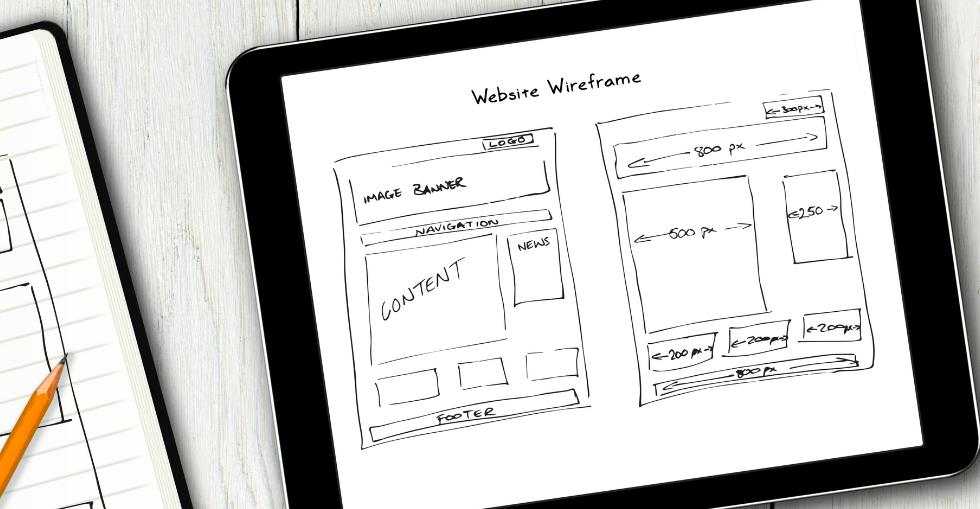So, you've jumped on the digital bandwagon and got yourself a shiny new website... but what's next?
Marketing is an integral part of running a website, after all, there's no point in having one if nobody knows it's there.
Your website is far more than an online brochure and should aim to do several things:
• Educate the user about your products or services - Answer the user's questions
• Inspire trust
• Capture information from users, keeping in contact with users with newsletters can be a great way to upsell products
You must capture a user's interest in less than a second, otherwise, they'll hit the back button - so make it count
The following qualities will make your site immediately appealing:
• Good, clear design - don't confuse your user
• Easy to navigate - make it easy for your user to find what they want, have a clear navigation structure
• Avoid flash or moving images, which will eventually distract the user
• Have a great homepage clearly describing who you are and what you do so the user can have trust in you
• Have multiple contact methods on a separate 'contact us' page. Include your phone number on every page - some clients will always prefer to talk when placing an order, so don't risk alienating them
• Make sure you include your address (which should be a business address, not a home address) as some people distrust websites without a physical address
• Tell your users why your products or services work. Don't just tell them what you do - write the pages from their perspective
Include a 'meet the staff' page if possible, complete with staff photos and short profiles. This builds trust in your company.
Update your website regularly. - Consider having a news section or something similar. You need to make it 'sticky', which means users want to keep coming back to see what has changed.
Provide prices - Some users shop around for prices and disregard websites that do not include price.
Google's perspective
It is important that Google regards your website highly, as this means you'll be higher up in the search results. Here are some steps you can take to improve your Google ranking.
• Choose a clear domain name, ideally with no dashes or underscores
• Make sure the page descriptions on every page are succinct and entice the user to visit your website. Often, the page description appears next to the website name in searches.
• Make sure each page has a sensible name that matches the product you are offering. Don't include the name of your company in the title - just the name of the product. An example would be Time_Management_Training. Google allows underscores to break up words.
• A website that changes regularly will rapidly ascend the Google search listings. One way to do this is to ensure you buy a website that can be updated regularly through a content management system (CMS).
• Avoid flash websites as Google is unable to read them correctly
• Make sure your website is optimised for mobile use - or it could risk becoming invisible in the search results.
The website owner's perspective
Aim to catch a user's email address. You can do this by offering a free report or something similar in exchange for their personal details. Email subscription systems to consider are
If you don't mind writing a series of emails to go out, you can set up an auto-responder set of emails. These will generally go out daily or weekly to those who sign up.
A great example of an auto-responder is AWeber. Have the site designer install tracking on your web pages.This means you'll be able to trace the source of your enquiries.
How can I set up a website cheaply?
Engage a website designer you know personally, possibly through networking. This means you're more likely to get a personal service. If this isn't possible, investigate options online, but be sure to look at their reviews.
You can register names and set up web hosting online. I have multiple domains set up with different providers. It's easier to purchase your hosting at the time you buy your domain, but this isn't usually the most cost effective method.
Once your website is set up correctly, you must ensure users can find it. There are two main ways of doing this: Search Engine Optimisation (SEO) and pay per click (PPC).
SEO will get your website found organically, which means you'll appear higher up the search results without having to pay for advertising space. This is part of a
PPC can be implemented through services such as Google AdWords. PPC will get your website found instantly by potential clients. You can direct people to the correct page for the relevant product or service, meaning they are less likely to leave for another site.
A PPC Campaign can give you a quick win, whereas SEO is like a reputation that takes a while to build. It can be difficult to set up at first, so you may wish to attend a PPC Course to ensure this is done correctly. Google have a pretty comprehensive course available, and it's free here.
It is imperative you track your results carefully. You will particularly want to track conversions, which is when a user takes a desired action while on your site, such
You can install conversion code through Google Analytics, either yourself if technically competent or ask your website designer to help.
Measuring results
Once you've started attracting traffic to your website and started measuring conversions, you'll need to evaluate the results to see if your website is performing as expected.
Example questions might include:
• How many new enquiries have been received today from the website (make sure you ask where people heard of you)?
• How many leads have been generated through the website?
• How many sales have been generated from the website? What is the bounce rate for your visitors?
• How many document downloads have there been?
Once you have started measuring your results, you will soon be able to determine whether or not your website is making money and determine your return on investment.
If you enjoyed this article, sign up for a *free* BusinessesForSale.com account to receive the latest small business advice, features,



